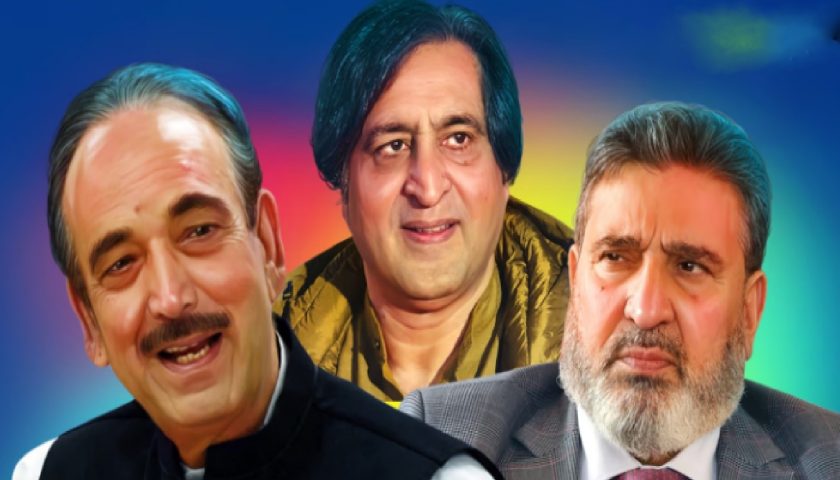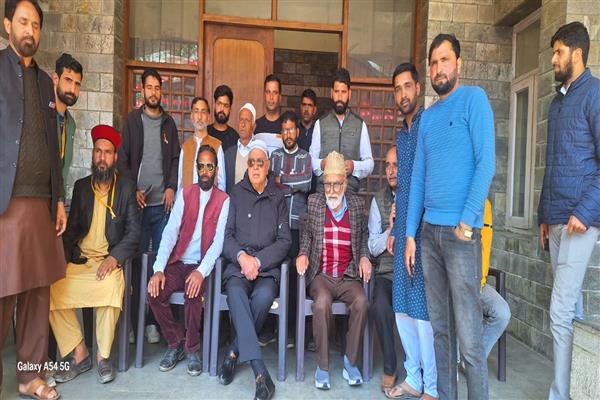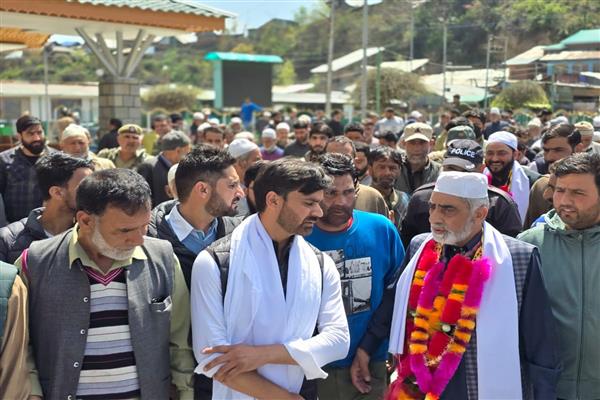The fresh clamour over abrogation of Article 35-A which confers special rights and privileges on J&K’s permanent residents has sent the alarm bells ringing in the state, with National Conference calling a meeting of Opposition parties here on Monday to discuss the sensitive issue. The meeting comes in wake of a petition filed by a non-governmental organisation seeking abrogation of the constitutional provision that defines special privileges enjoyed by permanent residents of the state in matters related to employment, acquisition of immovable property, settlements and scholarships.
A source said National Conference president Farooq Abdullah would chair the meeting of Opposition parties at his Gupkar residence at 11.30 am. The J&K Congress chief Ghulam Ahmad Mir, Peoples Democratic Front chairman Hakeem Mohammad Yaseen, Democratic Party Nationalist president Ghulam Hassan Mir are among the invitees, the source said.
It has been reliably learnt that the meeting would—apart from general situation in the state—primarily discuss the ongoing clamour over abrogation of Article 35-A.
The Article was extended to J&K through the ‘Constitution (Application to Jammu and Kashmir) Order issued by President Rajendra Prasad on May 14, 1954. It was specifically devised to grant protection to state subject laws that had already been defined under the Maharaja’s rule and notified in 1927 and 1932.
Confirming tomorrow’s meeting, Congress chief Mir told Kashmir Post that “many issues confronting the state would be discussed.” Hakeem Yasin also confirmed his invitation to the meeting
“We will be discussing the current situation and the issues confronting the state,” he said.
The Supreme Court, which is hearing a petition filed by a NGO seeking abrogation of the constitutional provision, has referred the matter to a three-judge bench last month and reportedly set a six-week deadline for its final disposal. The development followed after government of India didn’t file a counter affidavit on the petition, saying the petition has raised “very sensitive” questions that required a “larger debate.” The stand taken by New Delhi is contrary to PDP-led state government’s stand which has filed an affidavit in the apex court seeking dismissal of the petition.
The demand by the right-wing groups has already evoked strong opposition from J&K, with chief minister Mehbooba Mufti herself issuing a stern warning to government of India last month over any tinkering with Article 35-A, saying there would not be nobody left to hoist tri-colour in Kashmir if it is done.
Legal experts have already cautioned that if the constitutional provision (Article 35-A) is scrapped, “J&K will lose all the special privileges including the state subject law, right to property, right to employment, and right to settlement.”
A source said the Chief Minister is also mulling “wider consultations” on the sensitive issue.
“The Chief Minister wants wider political consultations on the issue. She has already taken a stand on the issue and made her views public,” said the source.
It is likely that she may get in touch with other mainstream political leaders, including Farooq and Omar, on the issue.
Meanwhile, tomorrow’s meeting would also discuss the prevailing situation in Kashmir including NIA crackdown on separatists.
There has been no thaw in street protests in Kashmir since the killing of Burhan Wani by government forces in July last year. Of late, the forces have stepped up anti-militancy operations and around 40 militants have been killed in such operations during the past more than two months. However, Kashmir has seen rise in civilian casualties during these operations.
The BJP has also demanded that the cross LoC route between divided parts of Kashmir should be closed down.
What is Article 35-A?
It’s a constitutional provision that defines special privileges enjoyed by permanent residents of J&K in matters related to employment, acquisition of immovable property, settlements and scholarships. The Article was extended to J&K through the ‘Constitution (Application to Jammu and Kashmir) Order issued by President Rajendra Prasad on May 14, 1954. It was specifically devised to grant protection to state subject laws that had already been defined under the Maharaja’s rule and notified in 1927 and 1932.





